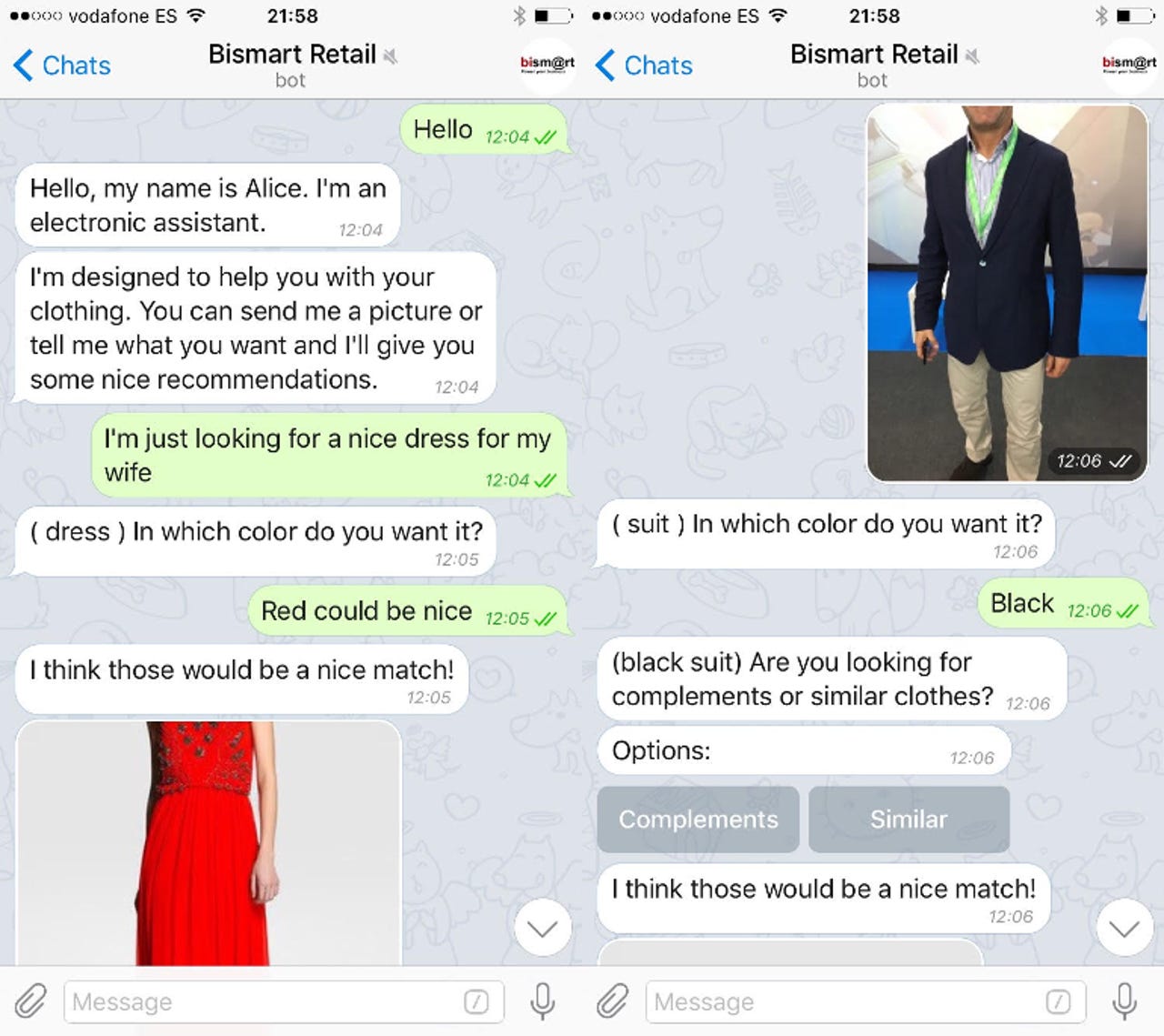Meet Alice, the Microsoft Cortana-based AI chatbot who aims to make you look stylish


Her name is Alice and she's designed to help you decide what clothes and accessories suit you best.
At the recent IoT Solutions World Congress in Barcelona, she was busy making recommendations about men's suits and women's party dresses via Telegram, Facebook Messenger, Skype, SMS, and webchat.
Bismart, the Catalan company behind the digital assistant, is a Microsoft Worldwide Partner with a background in big data, machine learning, and artificial intelligence applied to marketing. With 50 employees, it expects to close the year with a turnover of €3m ($3.32m), 50 percent up on 2015.
"We've just opened a new office in Singapore, where we anticipate a turnover of up to €500,000 in the first year," says Albert Isern, CEO of the company.
During his enthusiastic presentation of Alice's capabilities at the conference, he turned to his colleague Ismael Vallvé, who specializes in e-commerce and business models, for assistance with a demo.
Vallvé describes Alice as a digital assistant that can be integrated into a mirror, e-commerce, a mobile or even a small robot.
"Imagine a small robot assisting you when you're trying on something," he says.
Alice takes advantage of Microsoft's Cortana intelligence capabilities, which allow the bot to be incorporated into customers' business applications.
"We could have developed an app, but users are already on Telegram, Messenger, and so on," Vallvé says.
Bismart's artificial-intelligence algorithms do the rest. They combine the necessary data to make clothing recommendations, based on preferences, lifestyle, social profile, economic status, and purchasing history, when customer loyalty cards are involved.
This information is processed using Microsoft Azure Machine Learning. The system also uses the SDK offered by Microsoft in its suite and the Cortana Cognitive Services for the interpretation of language.
This makes the interaction with the BOT look like a human conversation -- at least when it has to do with clothing. But Alice is not perfect yet and continues to misunderstand some phrases. Still, Bismart is working hard to improve it so that it can be launched in early 2017, as planned.
"We're in talks with several stores and working with an international retail company and a chain of aesthetic clinics for the launch," Bismart's Isern says.
"We're going to start with clothing, but actually Alice can be applied to any sector to offer better services to consumers based on their tastes and demographics," he adds.
"These predictive capabilities can help companies target their customers and be more efficient in marketing campaigns. Big data does help us to be more effective."
The company's Smart Social Home Care big-data product for healthcare and social services, which is aimed at predicting future demand, won awards in the healthcare and best innovation categories at the IoT Solutions World Congress & Technology conference.
Richard Soley, executive director of the Industrial Internet Consortium and one of the keynote speakers at the conference, echoed this sentiment. He says his organization is already seeing the combination of IoT, AI, and machine learning in an IIC testbed project, led by Dell Technologies and Toshiba for automated building-control efficiency.
"This is just the tip of the iceberg. Safety and efficiency gains will lead quite quickly to new business models, new products and services that we can't even guess, in every market," he says.
"The convergence of these disruptors is fun to watch, but more fun to do, which is why the IIC builds testbeds."